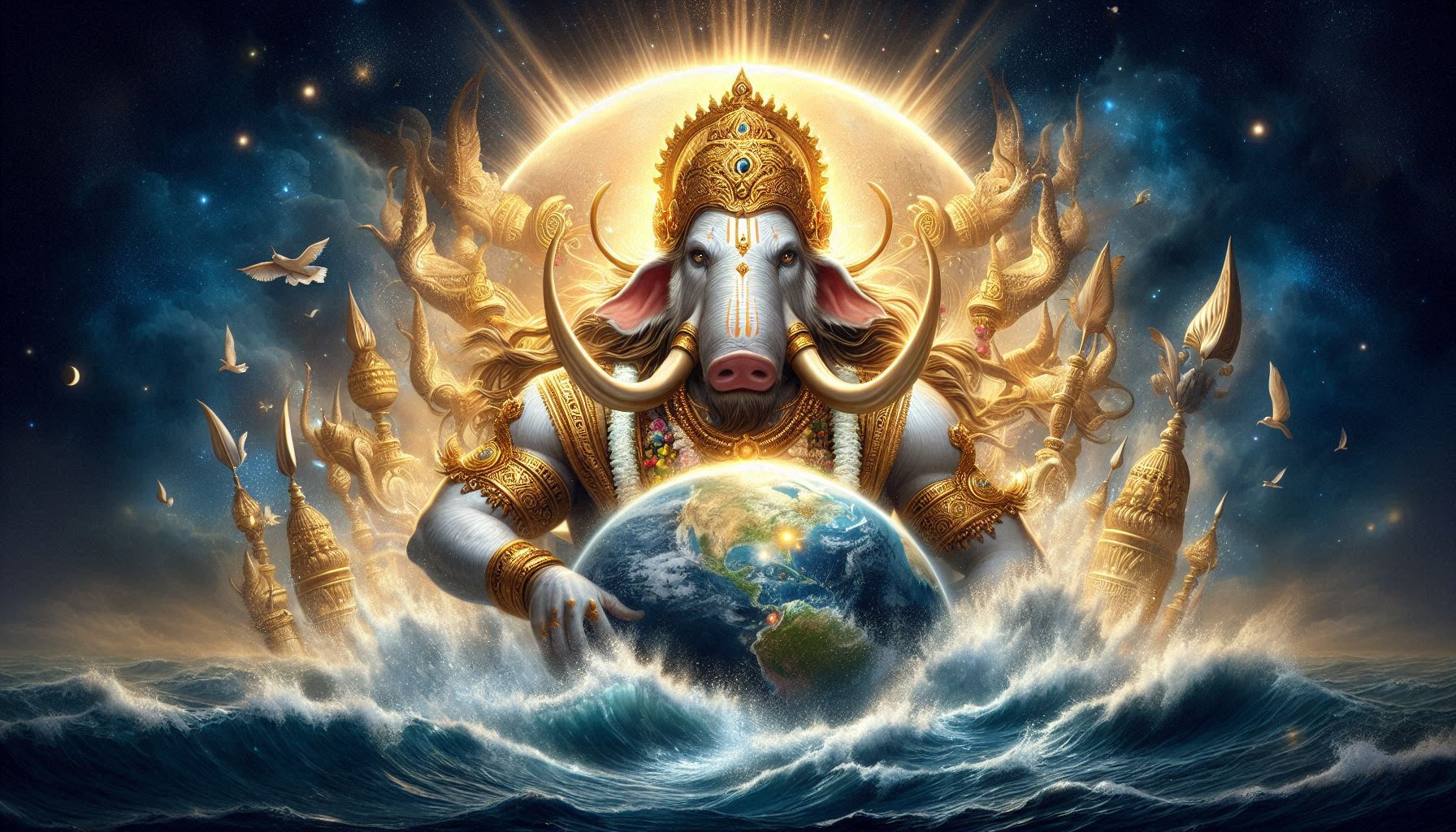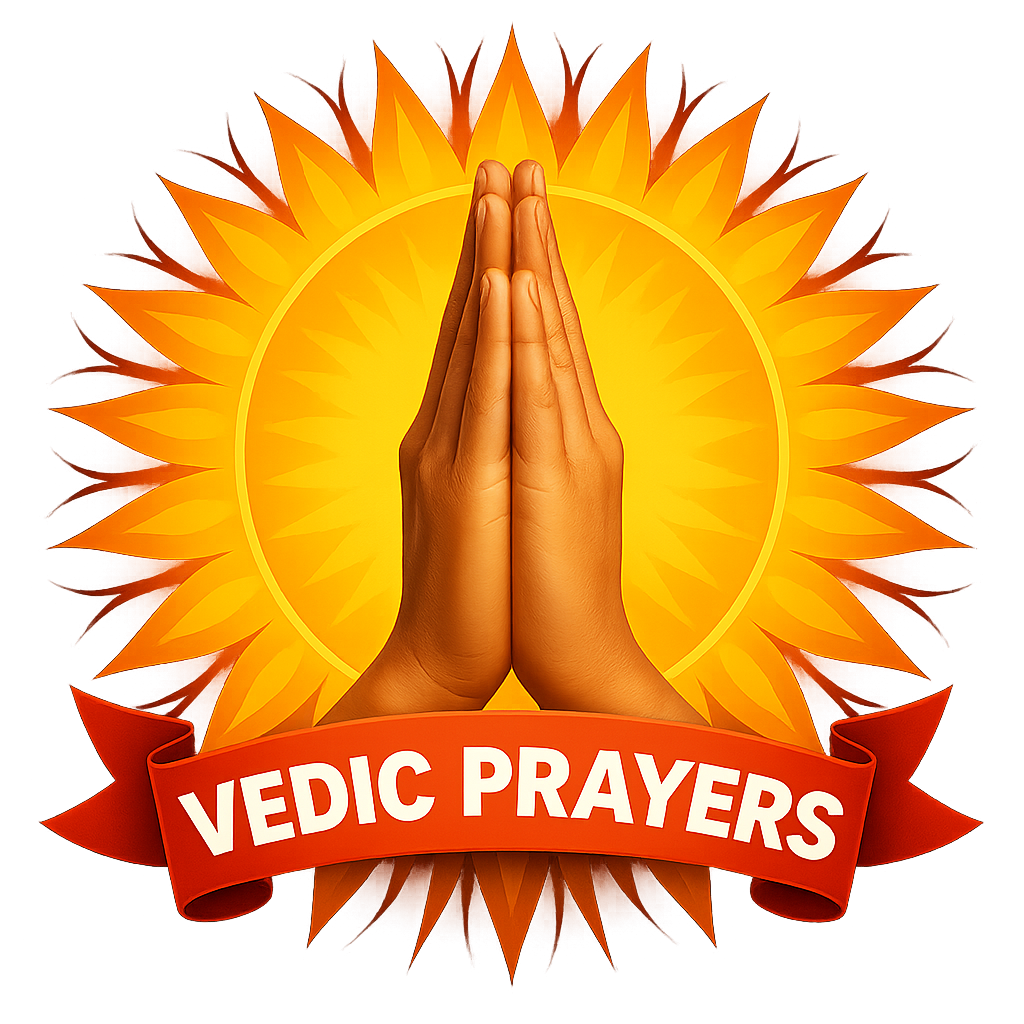
Shri Varaha Jayanti 2024
Varaha Jayanti is a significant Hindu festival celebrated to honor Varaha, the third incarnation (avatar) of Lord Vishnu. This festival is observed on the 14th day of the Shukla Paksha (waxing phase of the moon) in the month of Ashwin, which typically falls in September or October. Varaha Jayanti marks the divine appearance of Lord Vishnu in the form of a boar, Varaha.
Mythological Significance: According to Hindu mythology, the story of Varaha avatar is detailed in the Puranas, particularly the Bhagavata Purana. The demon Hiranyaksha had kidnapped the Earth (Prithvi) and submerged it into the cosmic ocean. To rescue the Earth and restore balance, Lord Vishnu took the form of a gigantic boar, Varaha, and descended into the waters. He lifted the Earth on his tusks and vanquished the demon, restoring it to its rightful place.
Importance of Varaha Jayanti:
- Symbol of Protection and Restoration: Varaha Jayanti celebrates Lord Vishnu’s role as a protector and restorer of cosmic order. The Varaha avatar symbolizes strength, courage, and the divine power to overcome evil.
- Devotional Worship: Devotees observe this day to express their reverence for Lord Vishnu and seek his blessings for protection, prosperity, and stability.
Celebration and Rituals:
1. Preparation and Sanctification:
- Early Morning Rituals: Devotees wake up early in the morning and perform ritualistic bathing to purify themselves.
- Cleaning and Decoration: The worship area is cleaned and decorated with flowers, rangoli, and traditional items to create a sacred environment.
2. Puja (Worship):
- Idol Installation: An idol or image of Lord Varaha is placed on the altar. If an idol is not available, a symbolic representation or picture of Varaha can be used.
- Offering: Devotees offer various items such as flowers, fruits, sweets, and incense to Lord Varaha. Traditional offerings may include coconut, jaggery, and other sacred items.
- Chanting and Prayers: Recitation of hymns and verses dedicated to Lord Varaha is performed. The Varaha Ashtakshara Mantra or Varaha Stotra is chanted to invoke the deity’s blessings.
- Aarti: Aarti (a ceremonial light offering) is performed with a lamp while singing devotional songs in praise of Lord Varaha. This is an important part of the puja, symbolizing the illumination of divine light.
3. Fasting and Feast:
- Fasting: Some devotees observe a fast on this day, consuming only fruits and light meals. The fast is observed to show devotion and to purify oneself.
- Feast: After the puja, a feast is prepared with special dishes, and prasad (sacred food) is distributed among the devotees.
4. Special Rituals:
- Reading Scriptures: Devotees may read scriptures and stories related to Lord Varaha from the Puranas, particularly focusing on the Varaha Avatar's exploits and divine deeds.
- Community Involvement: In some regions, community gatherings and processions are organized, featuring recitations, singing, and dancing in honor of Lord Varaha.
Do’s and Don’ts:
Do’s:
- Devotional Participation: Engage wholeheartedly in the puja and rituals, maintaining devotion and respect.
- Offerings and Prayers: Make thoughtful offerings and recite prayers sincerely to seek Lord Varaha’s blessings.
- Charitable Acts: Performing acts of charity, such as donating to the needy, is considered auspicious on this day.
Don’ts:
- Avoid Negative Actions: Refrain from engaging in any negative or harmful activities. Maintain a positive and peaceful demeanor throughout the day.
- Avoid Excessive Consumption: If observing a fast, avoid overeating or consuming prohibited foods.
Regional Variations:
- South India: In South India, Varaha Jayanti is celebrated with great devotion, and special pujas are conducted in Vishnu temples. Temples often have elaborate celebrations, including processions featuring the Varaha idol.
- North India: While Varaha Jayanti is less prominently observed in North India compared to other regions, some communities do celebrate with local rituals and temple activities.
Varaha Jayanti is a day to honor and worship Lord Vishnu’s Varaha incarnation, celebrating his divine intervention to restore balance in the universe. By participating in the rituals and observing the festival with devotion, devotees seek the blessings of Lord Varaha for protection, prosperity, and stability in their lives.
















